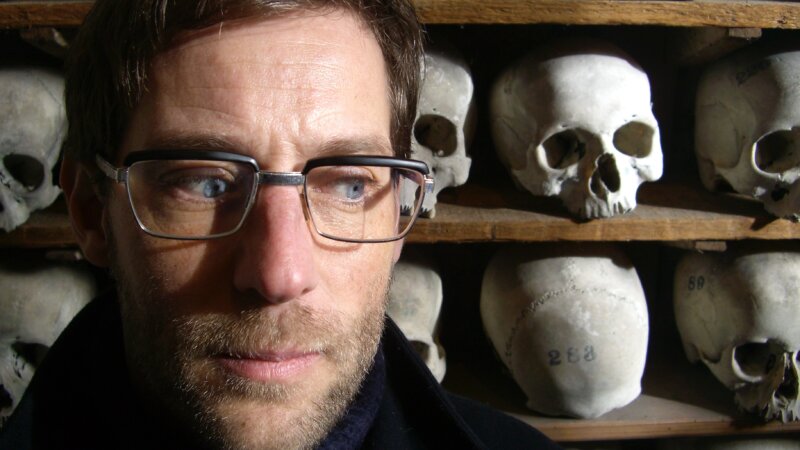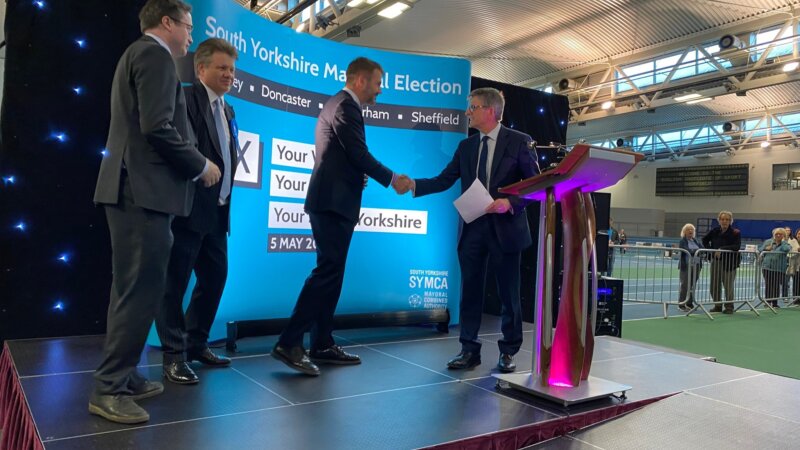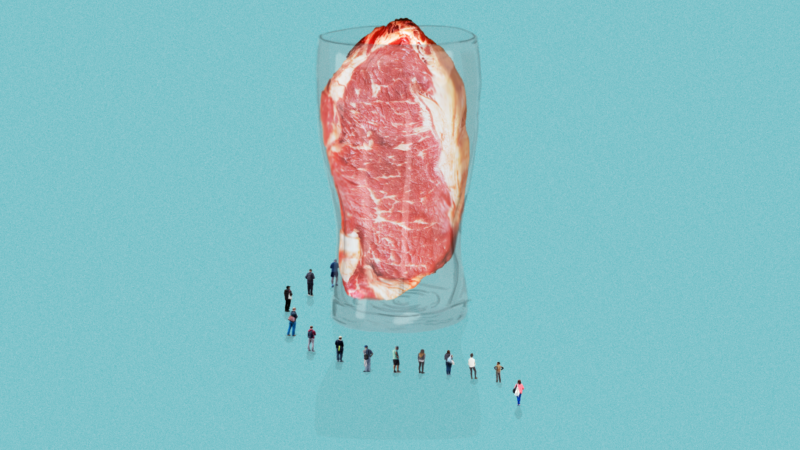Michael Palin: The Meaning of Live
Michael Palin has achieved many titles over the years - globe-trotter, accomplished author, presenter, actor, comedian, CBE. It’s no wonder he remains one of the UK’s best loved sons.
Born and raised in Sheffield, Michael went on to study Modern History at Oxford University, before making a name for himself writing and performing in one of the most successful comedy groups in history.
Monty Python struck a chord for a whole generation, and after parting ways almost 35 years ago, they reunited late last year for a string of shows in London. Selling out the first show of ten in just 44 seconds, the Pythons proved that they are just as popular today as they were back then.
I spoke to Michael ahead of The Meaning of Live screening and Q&A event at the Crucible on 10 June as part of this year’s Doc/Fest.
How did The Meaning of Live documentary come about and how did Roger Graef become involved?
We decided that it would be good to have a documentary to show the actual making of One Down Five To Go. We started very early on, perhaps back in November 2013, and we had some good work. Then what happened was Roger Graef got involved. A long time ago we all worked on the Amnesty show and he took over the filming of it. He is a very experienced documentary filmmaker.
Returning to the stage after 35 years, did you find yourselves immediately slipping back into old roles and routines within the group?
We found that getting back on stage was very easy. The fears just slipped away and it felt very fresh, which was a relief. The anxiety of playing a show at the O2 is the size of it, because the comedy might be difficult to put across. But we were able to play the sketches very well and the timing wasn’t affected by the amount of people watching.
It was really good fun to perform on stage again and get back that joy of comedy. Python was about six people, before Graham sadly left us, mucking about and having a good time, and that had to be recaptured for the show. We were motivated by this need. If we were doing it to earn a bit of money, the audience would have known and it would have been a less successful evening.
You mention Graham Chapman and it is something you address in the film, but how would he have felt about the reunion? Was his passing one of the reasons it’s taken so long for you to get back together?
I think Graham would have loved being on stage with us, and it was great that we could integrate him into the show. There was a real presence and I think the audience picked up on that.
There were various reasons why we didn’t do something sooner. I can only speak for myself, but I always felt that not having Graham there was a real problem. He was a big part of the great sketches and he was a terrific actor. It’s a bit like a six legged table. If you take one away, it’s not quite right. Until now we never found a satisfactory way to integrate Graham into the show. There were discussions about getting someone else in, but we didn’t think that would be right. It’s another great example of the way that technology has changed. We were able to get Graham onto the screen, in the show, so we felt that we had done him proud.
Python is still something that’s quoted and loved today. Starting out, did you think that it fitted in with comedy shows of that time or did you know that this was something different?
We wanted to make the show different. John Cleese and Graham [Chapman] had worked on At Last the 1948 Show, which had elements of Python, and myself, Terry Jones and Terry Gilliam worked on Do Not Adjust Your Set, which was a children’s comedy show and there were elements of Python humour there.
What we were trying to do when Python started was change the format of television. There was Dad’s Army and Morecombe and Wise, which was good stuff, but we wanted to switch it up. Sketches had to have a beginning, a middle and an end. We wanted the titles in the middle and upside down. So we got Terry Gilliam in, who did some wonderful animation and took it from one strange place to another. At the time we didn’t have high ratings, so we never knew how successful it would be.
Is this something you can see yourself returning to having done the live shows or is that it for Python live?
We have no plans to reproduce the show and I personally don’t think we ever will. It was a very expensive show to make. We decided that these would be our last ten shows and that we’d go out with a bang. We performed to our best back then and I wouldn’t want to see us trailing the world doing the show reluctantly. Python, on the other hand - we see each other often, meet up and sometimes do business together.
You toured last year to promote your recent book of diary entries, Travelling to Work: Diaries 1988-98. How did you find that and do you have any plans for future writing?
I really enjoyed the tour. I find myself going back to stage work and working with live audiences is where I began, pre-Python. I enjoy being in front of an audience and the great thing is that it’s different every night. The audiences have come to see you so there’s a warmth and appreciation. They want to hear and see you talk about things. Yes, I am hoping to do another later in the year, so the planning is in motion.
You headed the cast in the BBC supernatural drama Remember Me last year. How was this different from other roles you’ve taken on? Was it refreshing to step away from comedy?
I’ve always enjoyed doing different things because I get quite bored easily. I’m fortunate to have done all the things I’ve done over the years. Some have worked and some haven’t. The role for Remember Me came completely out of the blue. From the moment I read the script I was on board. I thought he was a fascinating character.
I’ve always been drawn to ghost stories, but it’s a tricky thing to do. You can’t give things away too early on. So I met the director, who I like very much, and it had a terrific supporting cast. I got some nice compliments about the acting, but many people said, “You were quite nasty,” and I thought that was good. It’s a nice antidote to the bland, nice Michael Palin that gets lobbed at me now and then. It was a pleasure to do from start to finish.
Maybe this could be the start of the new, nasty Michael Palin?
Well, acting is what I’ve always loved doing and started off doing. You just have to pick and choose the parts that come your way and hope that it’s the right part at the right time.
Tickets for The Meaning of Live screening and Q&A at the Crucible on 10 June can be purchased at sheffieldtheatres.co.uk. )
Filed under:





